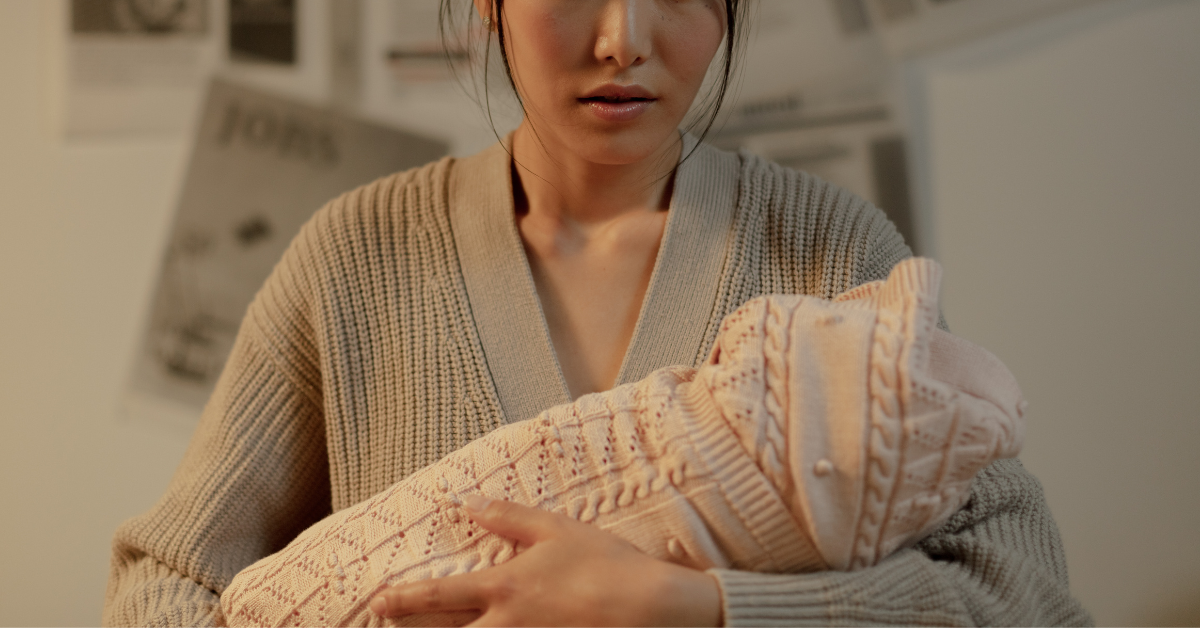Postpartum psychosis is one of the most severe mental health challenges a new mother can face. This rare but serious condition can occur in the days or weeks after childbirth, and it requires immediate medical attention.
The experience can be frightening and overwhelming for both mothers and their families. Symptoms can appear suddenly, greatly affecting a mother’s perception of reality and her ability to care for herself and her newborn.
Early recognition saves lives. Understanding the signs of postpartum psychosis allows families and healthcare providers to act quickly, protecting both mother and baby during this vulnerable time. With proper medical support and treatment like the care offered at Milton Recovery Centers, women can fully recover and develop strong, healthy bonds with their children.
Understanding Postpartum Psychosis
Postpartum psychosis is different from the common experiences that many new mothers go through. While baby blues affect up to 80% of new mothers with mild mood changes that go away within two weeks, and postpartum depression affects about 15% with ongoing sadness and anxiety, postpartum psychosis is a serious psychiatric emergency.
This rare mental health condition affects approximately 1 in 1,000 mothers, typically emerging within the first two weeks after childbirth. The sudden onset and severity of symptoms create an urgent need for immediate medical intervention.
Signs of Postpartum Psychosis
Key signs of postpartum psychosis include:
- Rapid mood swings between depression and mania
- Loss of touch with reality
- Hallucinations or delusions
- Confusion and disorientation
- Erratic behavior
Why Immediate Care is Crucial
The acute nature of postpartum psychosis requires immediate hospitalization. Research indicates that with proper medical care and support, women can achieve full recovery and return to their roles as mothers. Early recognition and swift action create the best outcomes for both mother and baby.
Signs and Symptoms to Watch For
Postpartum psychosis symptoms typically emerge within the first 2 weeks after childbirth, though some women experience onset up to 12 weeks postpartum. The rapid escalation of symptoms demands immediate medical attention.
Key Warning Signs:
- Severe Mood Changes: Extreme euphoria or agitation, rapid shifts between depression and mania, intense restlessness or irritability
- Disconnection from Reality: Hearing voices giving instructions about the baby, seeing things others cannot see, believing the baby is evil or divine, paranoid thoughts about harm to self or baby
- Behavioral Changes: Decreased need for sleep, racing thoughts and rapid speech, difficulty concentrating or making decisions, obsessive cleaning or organizing, refusing help with the baby
Untreated postpartum psychosis creates significant risks for both mother and child. Women may experience impaired judgment, leading to unsafe decisions about infant care. The condition can result in self-harm behaviors or thoughts of harming the baby. Sleep deprivation often intensifies symptoms, creating a cycle that requires professional intervention to break.
The presence of these symptoms requires immediate emergency care. Partners, family members, and healthcare providers play a crucial role in identifying these warning signs and facilitating prompt treatment.
Identifying Risk Factors
Understanding personal risk factors empowers expectant mothers and their support networks to implement preventive strategies. Women with a history of bipolar disorder face a significantly higher risk of developing postpartum psychosis, with research indicating a 25-50% chance of occurrence. A family history of schizophrenia or previous psychotic episodes also increases susceptibility.
Additional risk factors include:
- First-time pregnancies
- Previous experience of postpartum psychosis
- Traumatic birth experiences
- Recent discontinuation of psychiatric medications
- Family history of severe postpartum mental illness
Sleep Deprivation: A Critical Factor in Postpartum Psychosis
The intense sleep disruption common in early parenthood can trigger or worsen psychotic symptoms. New mothers experiencing less than 4 hours of uninterrupted sleep face increased vulnerability to postpartum psychosis. This risk intensifies when combined with:
- Irregular sleep patterns
- Difficulty falling asleep when opportunities arise
- Racing thoughts preventing rest
- Physical exhaustion
Early identification of these risk factors allows healthcare providers to develop targeted prevention strategies and monitoring plans for vulnerable individuals.
Exploring Treatment Options
Effective treatment for postpartum psychosis requires immediate medical intervention through a comprehensive care approach. Medical professionals typically recommend a combination of treatments tailored to each patient’s specific needs.
Medication Management
- Antipsychotic medications help reduce hallucinations, delusions, and disorganized thinking
- Mood stabilizers regulate extreme emotional fluctuations
- Careful medication selection considering breastfeeding status and infant safety
Therapeutic Support
- Individual counseling to process the experience
- Family therapy to strengthen support systems
- Group therapy with other mothers who have experienced similar challenges
- Monitored medication adjustment
In severe cases where a mother’s judgment is significantly impaired or safety concerns exist, involuntary hospitalization may become necessary. This decision is made by healthcare professionals in consultation with family members, prioritizing both the mother’s and the baby’s well-being.
At Milton Recovery Centers, we provide specialized outpatient facilities designed to support mothers through their recovery journey. Our treatment programs integrate medical care, therapeutic interventions, and family support services in a nurturing environment focused on healing and recovery.
Navigating the Recovery Process
Recovery from postpartum psychosis is a unique journey for each individual. Most women experience significant improvement within 2-12 weeks of starting treatment, yet full recovery can extend beyond six months.
Common challenges during recovery include:
- Rebuilding confidence in parenting abilities
- Processing complex emotions about the experience
- Adjusting to medication routines
- Re-establishing sleep patterns
- Managing relationships with family members
A structured follow-up care plan creates a strong foundation for sustained wellness. This typically includes:
- Regular check-ins with mental health professionals
- Medication adjustments as needed
- Support group participation
- Wellness monitoring
- Stress management techniques
The recovery path requires patience and dedication. Many women find strength through connecting with others who share similar experiences. Support from healthcare providers, family members, and peer groups plays a vital role in maintaining progress and preventing relapse.
Milton Recovery Centers provides specialized support through this critical phase, offering both individual counseling and group therapy options in a partial hospitalization program setting to address the specific needs of postpartum psychosis recovery.
Postpartum Psychosis Care at Milton
Your mental health is incredibly important during the perinatal journey. Every mother deserves support, understanding, and proper care during this transformative time. By recognizing the signs of postpartum psychosis and taking action, you can make a life-changing difference for both yourself and your baby.
Milton Recovery Centers is here to help mothers facing maternal mental health challenges. Our specialized team provides comprehensive care in a nurturing environment, offering evidence-based treatments tailored to each individual’s needs. We believe in creating a safe space where mothers can heal, grow, and build the strong foundation needed for their family’s future. Contact us today if you need help with postpartum psychosis.




